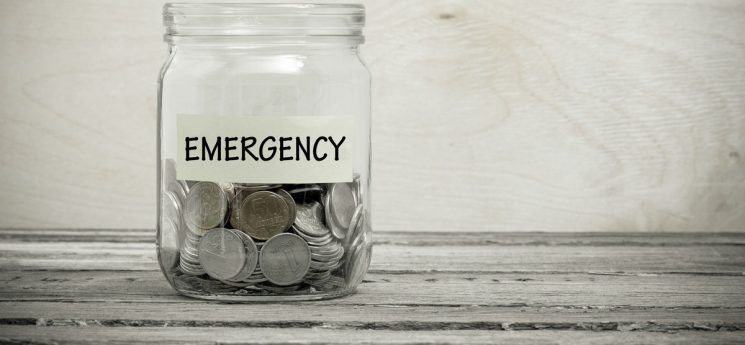6 Easy Ways to Build Your Emergency Fund

It’s smart to have an emergency fund set aside for those expenditures that come out of nowhere. For many people, this is one of the reasons why they have credit cards, but if credit cards are your financial backups, you may just be creating another headache for yourself further down the road. Using credit cards in a time of need may provide temporary relief, but if you can’t pay it off in a reasonable amount of time (or even make the monthly payments), your credit score is going to suffer.
The one surefire way to avoid going into credit repair mode is to have a financial war-chest that you can turn to in your times of need. How much you put aside is up to you. Some financial experts suggest a $500 emergency fund while others insist you have at least six months’ worth of expenses saved up. There’s no right answer, but obviously you should put away as much as possible while still also saving for future goals and expenses.
If you don’t have anything set aside, and are also suffering from bad credit, here are six ways you can quickly build up your emergency fund.
1. Start With What You Have
Add up how much you spend on your mortgage, car payments, student loan payments, travel expenses, insurance, phone, internet, groceries, and utilities. These are things you can’t change. What you have left over should go toward your savings. This is what you have to work with and should be considered your “bare minimum” monthly savings goal.
The first step toward improving your credit begins with what you already have.
2. Don’t Spend Your Tax Refund
A lot of people are able to get by without their tax refund for a majority of the year; however, when they get it, it’s quickly spent. If you’re lucky enough to get a refund, try not to throw all of it at credit card debt or car repairs, and certainly don’t use it to upgrade your TV. Instead, put as much as you can into a savings account. Even if it’s just 25%, every little bit helps.
Before you start the process of improving your credit, you have to have a little bit saved up. A tax refund that’s set aside can get you there fast.
3. Cut Out Redundant Monthly Expenses
What do you consider worth your money? Do your monthly expenses reflect only needs, or do they also reflect wants and impulses? If you have nothing set aside, you’re going to have to cut down on spending until you have an emergency fund in place. Only you know what you can cut back on. Common examples of redundant spending habits include: having a landline and a cell phone; buying coffee on the way to work when you have a full bag at home; paying for Netflix and cable TV; or eating out when you have a refrigerator full of food.
Basically, it comes down to conveniences. Cut out all conveniences until you have a better financial footing.
Of course, you may not have redundant spending. If this is the case, analyze your grocery bill. Are you spending a lot of money on frozen dinners and prepared foods? Could you save money by making more of your family’s meals yourself? Could you go from a $300 weekly grocery bill to a $150 one? If it’s hard, start off small. Do every other week until you and your family adapt.
4. Limit Credit Card Usage While Improving Credit
Come up with a monthly allowance for yourself and set aside that amount in cash. Leave your debit card at home, and keep only one credit card on you for emergencies (until you have your war-chest established, that is). This is all the money you are allowed to spend each month on groceries, gas, and other needs you may have. Doing this trick has helped a lot of people cut down on spontaneous, impulse spending and can also help your credit score.
5. Save Your Change
If you go an all-cash route, you’re going to have change left over. Put it in a jar. Don’t consider it surplus for next month. Instead, deposit it straight into your savings account—every little bit helps.
6. Find Supplemental Income
Work as a tutor, find some online freelance work, or even drive an evening or two as an Uber driver. If you want it, there is work out there to accommodate your schedule and expertise. It will take away the time you would normally spend with family or friends, but remember it is only temporary until you have enough money saved up.
Sources:
https://www.daveramsey.com/blog/4-quick-ways-to-build-your-emergency-fund
